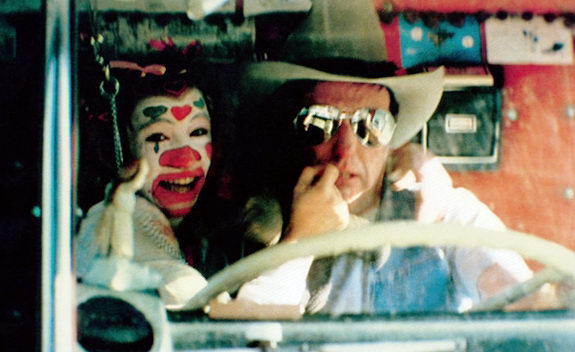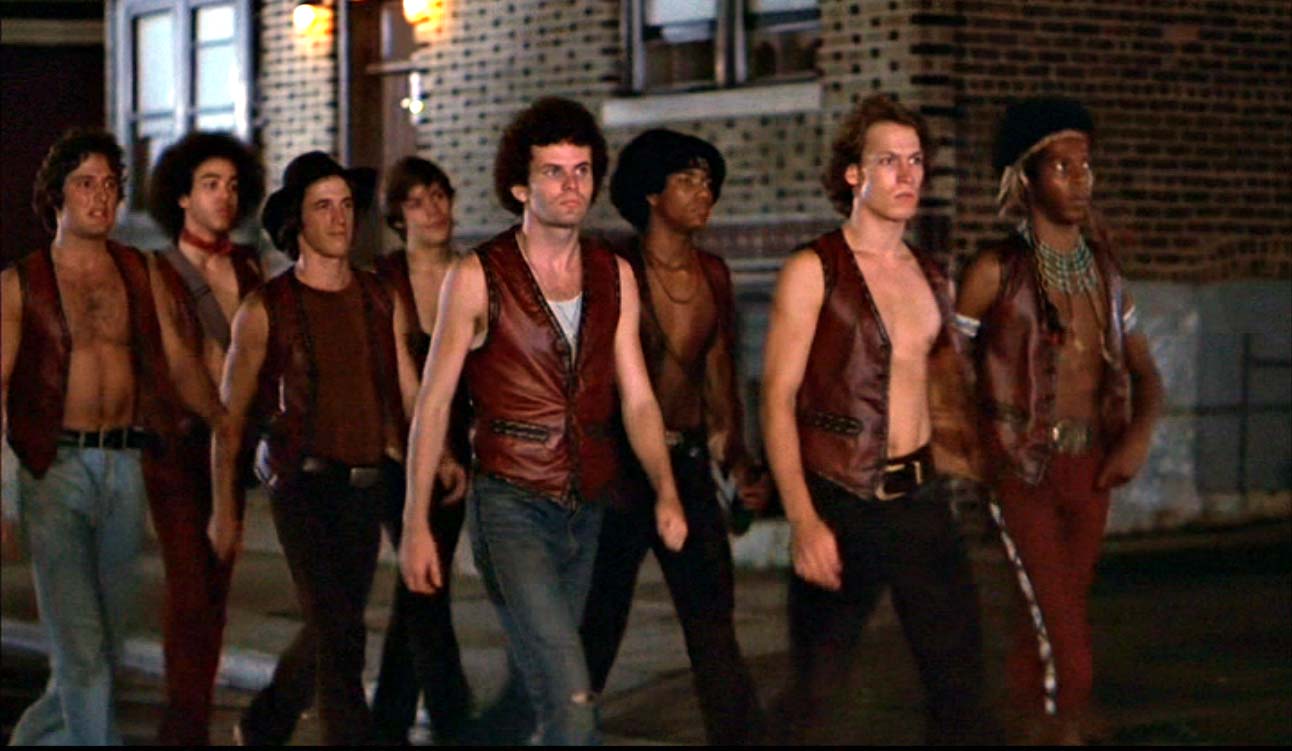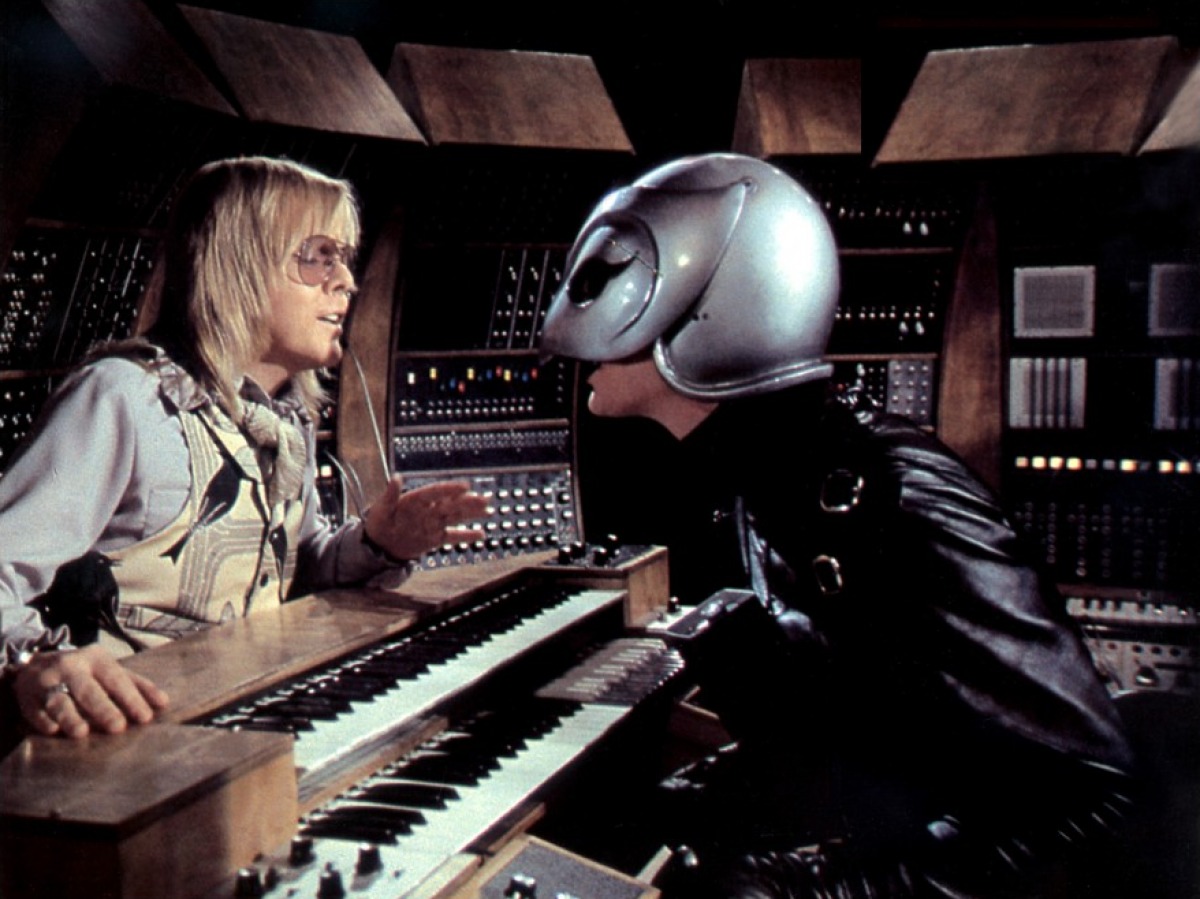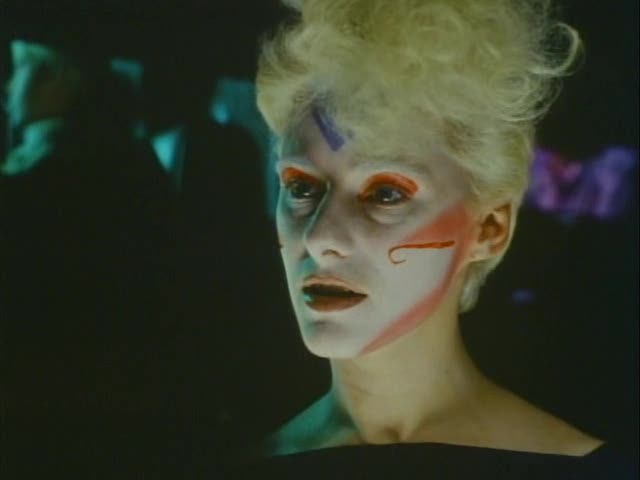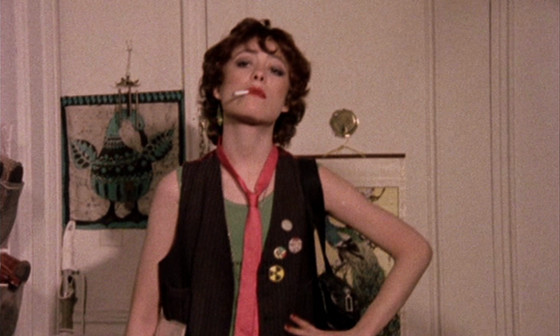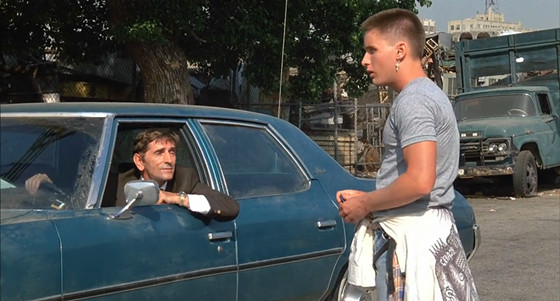8. Out of the Blue (Dennis Hopper, 1980)
Much like Easy Rider, Out of the Blue is an exercise on freedom, rebellion and the destruction of idols, with a rather bitter ending. There are substantial differences between the two though, especially regarding the directing; Easy Rider’s main point of reference was the hippie revolution, its perks and failures, while Out of the Blue focused entirely on the punk rock movement, serving as a major influence on the behavior of Linda Manz’s character, “CeBe”.
It’s a coming of age film, where we see a girl whose father is an ex-convict and an alcoholic and the mother is negligent. Among all of these elements, punk music is serving as a channel for hatred and rebellion. Other elements that may be linked to the movement are the appearances of the Canadian punk band the “Pointed Sticks” and the final scene, filled with a burst of anger and non-linearity.
9. We Are the Best! (Lukas Moodysson, 2013)
This is the kind of movie that generally goes unnoticed for the public, seeing that it’s a small Swedish production, not only relevant because of its dramatic impact – a great coming-of-age film, as it is – but also, and most importantly for the effects we see Punk Rock having in these three girls lives, a role of rebellion and an inspiration for expression.
Also, it brings up gender issues, how women are automatically considered inferior in the music business and in their creative efforts, even inside the punk rock movement.
10. SLC Punk! (James Merendino, 1998)
Stevo and Bob are the only punk rockers in the conservative Salt Lake City and they find themselves struggling to keep their style and way of life as they become adults.
This movie deals mainly with the meaning of the punk rock movement, while many people and the media see it as some kind of clothing style and rebellion without a cause, it actually goes beyond that, and that’s what these characters find out throughout the story: it doesn’t matter how you dress or how edgy you look, what matters are your actions (and that relates to the political dimension, too).
11. The Warriors (Walter Hill, 1979)
The Warriors is an allegory that represents the disturbed and politically tense times New York City went through during the 70’s and the 80’s, decades where the punk movement rose and established itself as a reference to many young people who were frustrated and discontent about the government and the failure of the American dream.
The battle between the street gangs can also be related to the real-life rivalry there was between punk rock and disco in New York City.
12. Phantom of the Paradise (Brian De Palma, 1974)
Brian De Palma achieved to compose a mosaic of different stories, The Phantom of the Opera, The Picture of Dorian Gray and Faust.
Its innovative plot and cinematography ended up receiving negative reviews from critics when it came out, but as time went by, it became a cult classic and today it is praised for its musical numbers and overall mixture of comedy, musical and horror genres.
13. Liquid Sky (Slava Tsukerman, 1982)
Liquid Sky was made in the transition of punk rock to new wave, so it clearly bears traits from both movements, including visuals and the unusual way to make a film. “Liquid Sky” used to be a slang for heroin in New York City in the 70’s and 80’s, therefore, it’s clear that the movie deals with the subject.
The movie is filled with bright colors, moody soundtrack, sex, drugs, strange characters and a crazy plot that blend within the punk subculture of the 80’s.
14. Smithereens (Susan Seidelman, 1982)
This film stars punk icon, Richard Hell, who was an important figure in the subculture of New York city in the 70’s, having voiced a generation with his song “Blank Generation”. This movie deals with the subject of rise to fame, which is the main goal of the protagonist. She is decided to make a name for herself, even if she doesn’t have any musical or industry skills, because somehow popularity and fame are regarded as superior goals to achieve.
The movie features a punk rock soundtrack performed by the band “The Feelies”. Even though the punk subculture is known to go against the established rules of pop culture, some values don’t differ much from the competitive and salvage ideals from the rest of society. What the protagonist finds out throughout the story is that this road to fame may be a lonesome one.
15. Repo Man (Alex Cox, 1984)
Another Alex Cox movie (see number 5), this one is the opposite of a biopic, instead, the plot focus on a science-fiction story, where Emilio Stevez plays an unemployed punk who sees himself entangled inside an illegal business of “repossessing” cars.
Although this new lifestyle is dangerous, it’s a step ahead from his former boring job, involving drugs, fast cars and money – much like the “live fast, die young” motto preached inside the punk rock movement. The movie received critical and audience acclaim, being regarded as one of the best films of 1984, and it also represents the punk style and ideology making way into a more mainstream scene.
Author Bio: Larissa G. Pierry is a Brazilian Psychology student, whose two great passions are writing and watching all kinds of movies, from old classics to trash horror (but has a pretty unhealthy obsession with David Lynch and John Waters). She pretends to be a full-time movie critic on her Letterboxd profile (http://letterboxd.com/tangerine23/), but someday really intends to do something professionally about her bad case of cinephilia.
